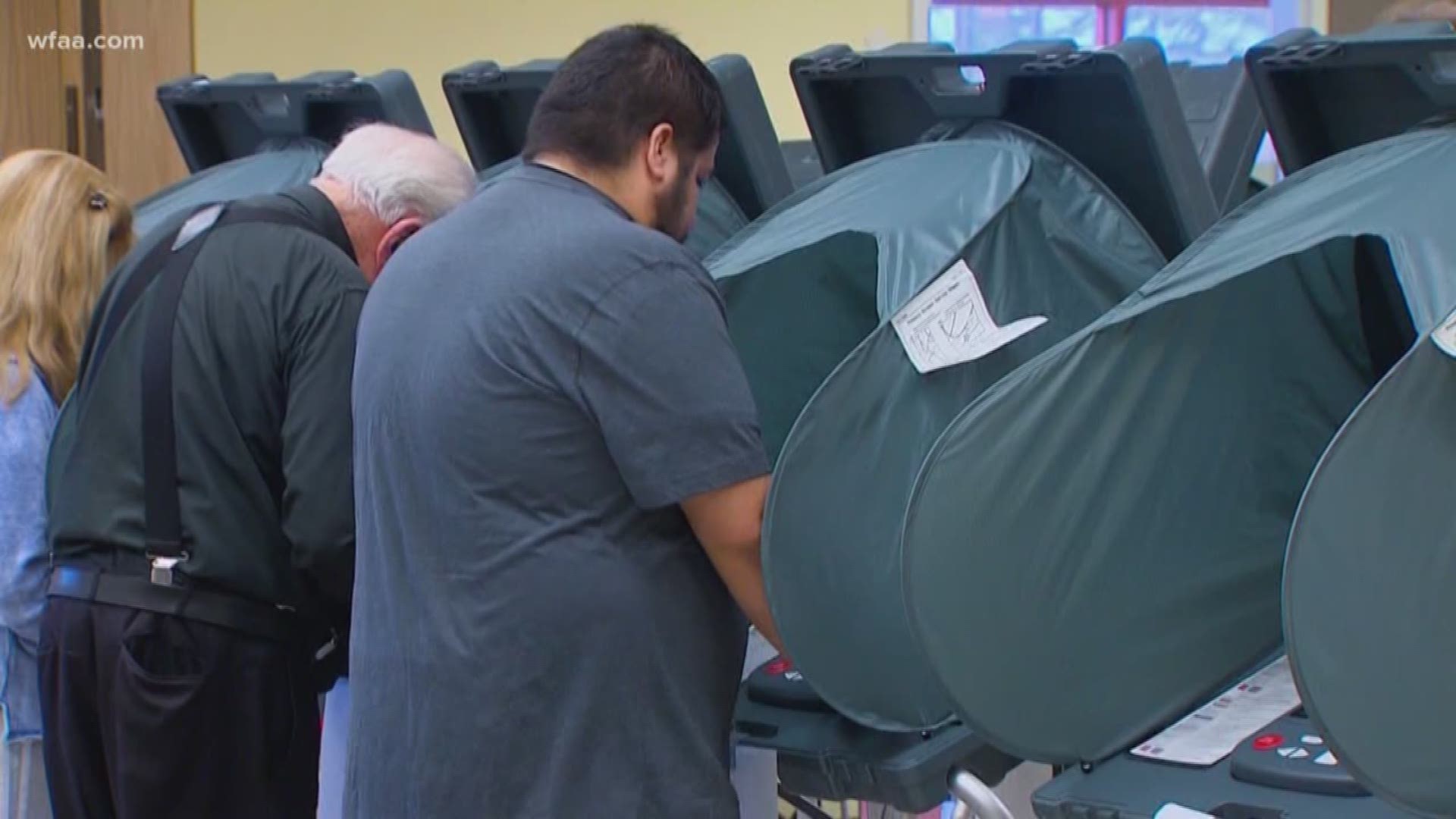DALLAS — A three-page letter signed by 13 civil rights groups was sent to Texas' secretary of state on Monday, threatening litigation if he did not retract an advisory sent to local election officials statewide last week about verifying the citizenship of tens of thousands of voters.
Last Friday, Secretary of State David Whitley sent out a press release claiming that his office had discovered that 95,000 registered voters in Texas are non-U.S. citizens.
Whitley's office, along with the Texas Department of Public Safety, had been investigating the state's voter rolls for the last year, according to the release.
Of the 95,000 non-citizens registered, 58,000 have voted in one or more elections since 1996, a spokesperson told WFAA.
The Secretary of State's office said it found those numbers by collecting current DPS data of people who have applied for a driver's license or state identification card in the last five years with a green card or visa.
The investigators then cross-referenced that data with people who are registered to vote.
The Secretary of State's office also sent the information to the state Attorney General's office, which will decide whether to pursue voter fraud charges. The Attorney General's office has prosecuted 130 cases of voter fraud since 2005.
It also notified election offices in counties statewide that they would be receiving data of registered voters who were flagged as non-citizens through their investigations so they may be able to verify if they're citizens or not.
By law, counties can revoke a voter's registration due to them not being a citizen.
However, they must request the voter to prove that they're a citizen and give them 30 days to do so before revoking registration.
The letter sent to Whitley today was signed by a number of notable civil rights groups including the ACLU and the Texas Civil Rights Project.
In the letter, it called Whitley's investigation into the voter rolls "...deeply flawed, and its origins and intent are highly suspect."
Representatives argued that the secretary of state's findings are "...woefully inadequate to ensure that only ineligible voters are removed from the rolls."
The letter also said that the state cannot account or prove that any of the people who got a driver's license or state identification card with a green card or visa didn't go on to become naturalized citizens.
Dallas Democrat and County Judge Clay Jenkins said he actually received calls from people in that type of situation over the weekend.
"People who called me got licenses with green cards before they were naturalized citizens," Jenkins said. "More than one person called me about this, and said they voted and wanted to know if they were in some sort of trouble.
"The answer to that is absolutely not. You're a U.S. citizen. You're registered to vote. You've done nothing wrong."
Jenkins, like most opposing Whitley's findings, said he wanted to see proof or data regarding the investigation.
"What we need to worry about are people using this story to come up with laws," Jenkins said. "The legislature is going on right now, and they can make it harder of U.S. citizens to register to vote here in Texas."
Aaron Harris, who helped sparked this evaluation of the voter rolls when he worked with Direct Action Texas, told WFAA that Whitley is moving in the right direction.
"It's very problematic, these could swing any number of elections," Harris said.
In August, WFAA reported that hundreds of non-citizens had been discovered as registered voters and that the Secretary of State's office was working to improve its voter database to determine the exact number of non-citizens registered.
A number of those voters were registered illegally by mistake while getting a driver's license or state ID, WFAA found.
Harris says if anything, the investigation proves that this is a widespread problem needing to be addressed by DPS.
"If you tell DPS that you're not a citizen, then you shouldn't be voting," Harris said. "How hard is that, it's not rocket science."

